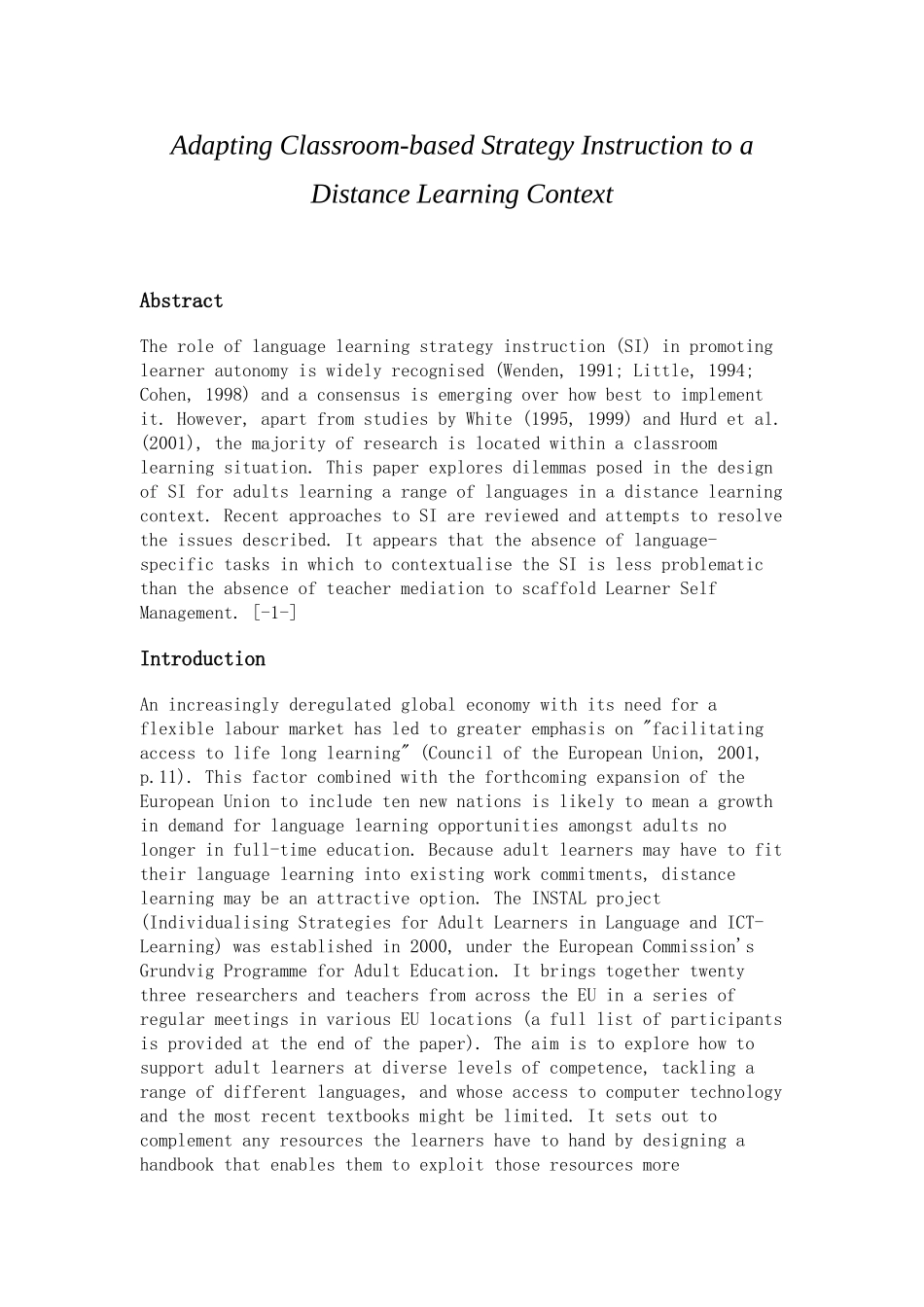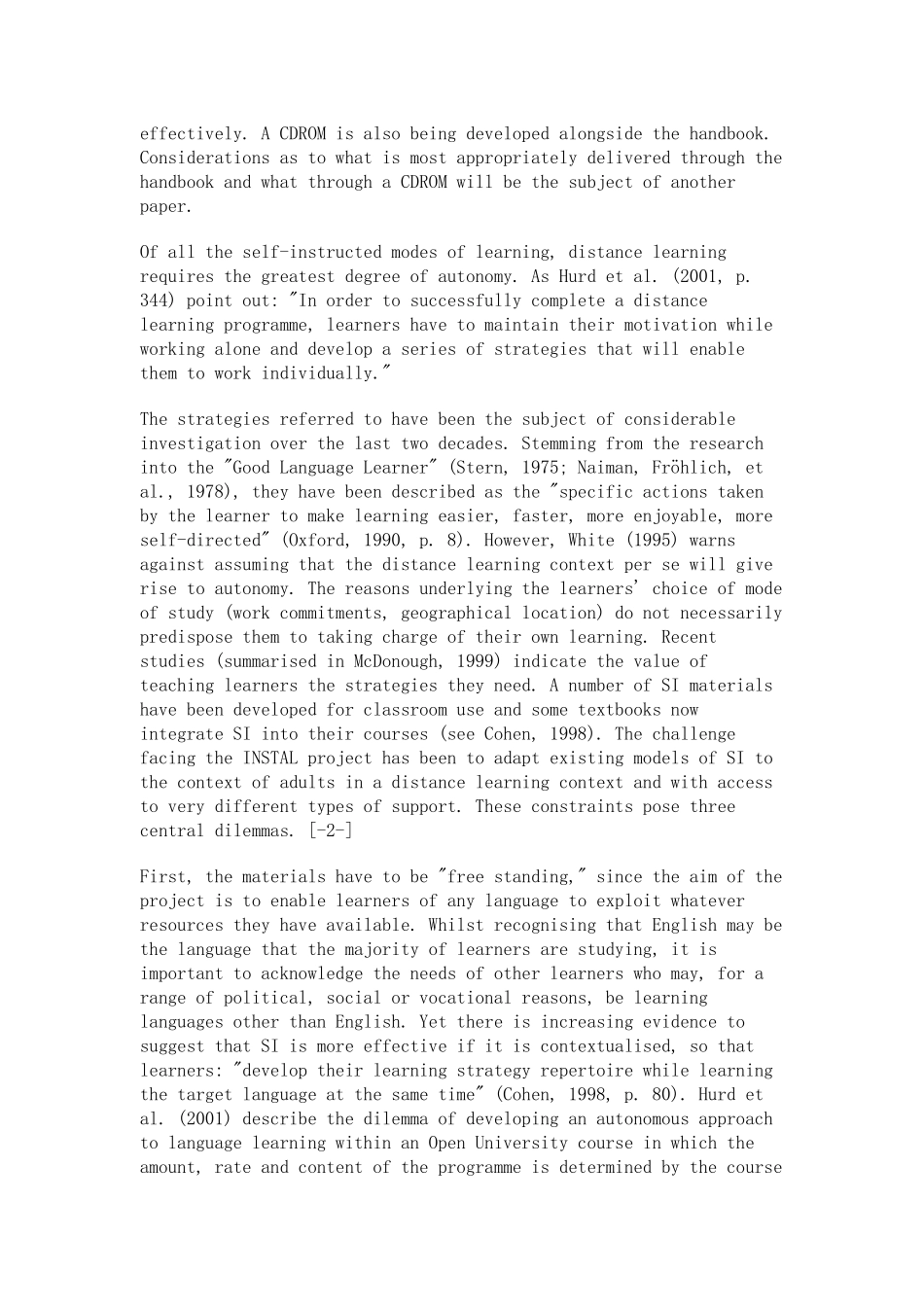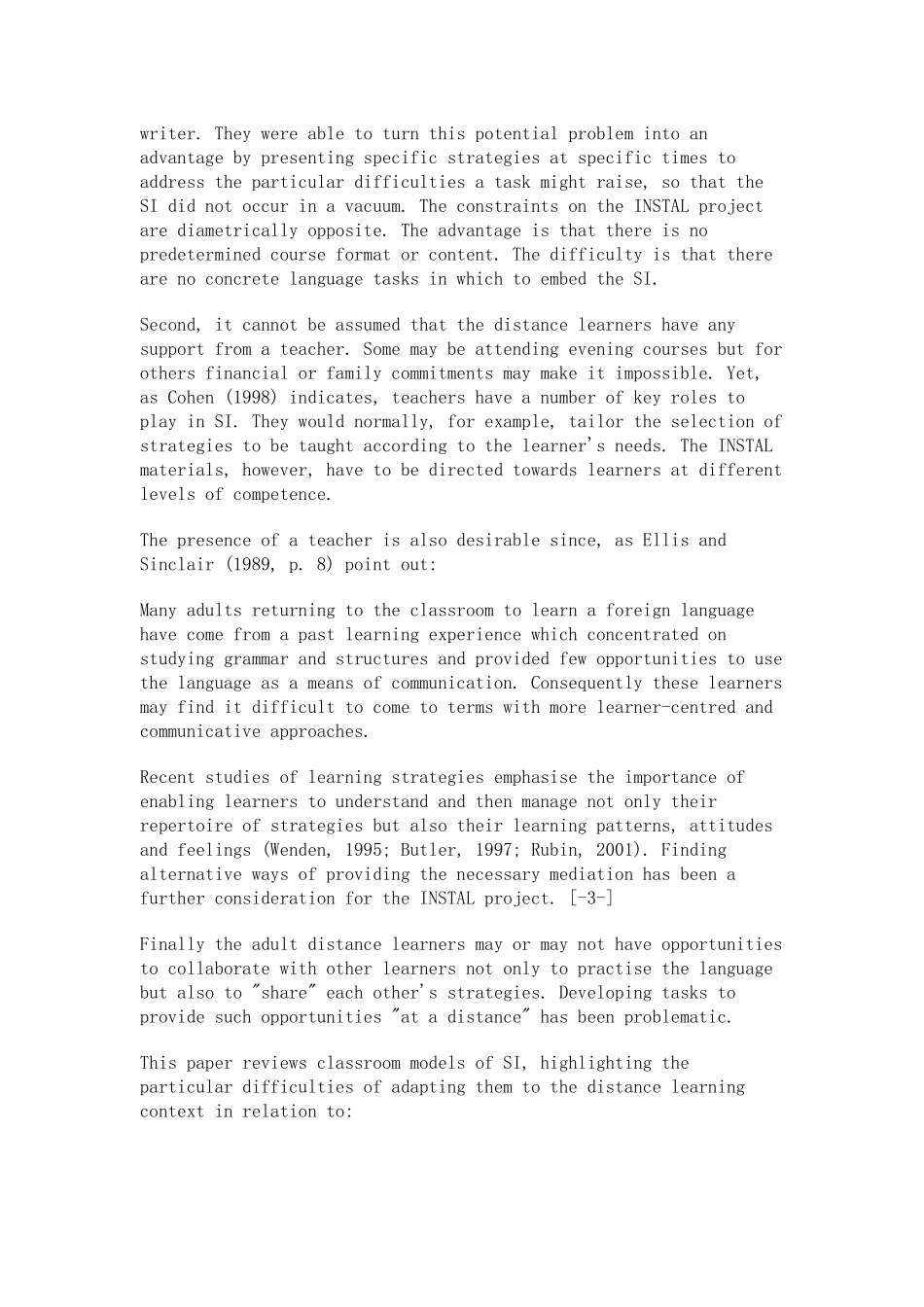Adapting Classroom-based Strategy Instruction to a Distance Learning ContextAbstractThe role of language learning strategy instruction (SI) in promoting learner autonomy is widely recognised (Wenden, 1991; Little, 1994; Cohen, 1998) and a consensus is emerging over how best to implement it. However, apart from studies by White (1995, 1999) and Hurd et al. (2001), the majority of research is located within a classroom learning situation. This paper explores dilemmas posed in the design of SI for adults learning a range of languages in a distance learning context. Recent approaches to SI are reviewed and attempts to resolve the issues described. It appears that the absence of language-specific tasks in which to contextualise the SI is less problematic than the absence of teacher mediation to scaffold Learner Self Management. [-1-] IntroductionAn increasingly deregulated global economy with its need for a flexible labour market has led to greater emphasis on "facilitating access to life long learning" (Council of the European Union, 2001, p.11). This factor combined with the forthcoming expansion of the European Union to include ten new nations is likely to mean a growth in demand for language learning opportunities amongst adults no longer in full-time education. Because adult learners may have to fit their language learning into existing work commitments, distance learning may be an attractive option. The INSTAL project (Individualising Strategies for Adult Learners in Language and ICT-Learning) was established in 2000, under the European Commission's Grundvig Programme for Adult Education. It brings together twenty three researchers and teachers from across the EU in a series of regular meetings in various ...












